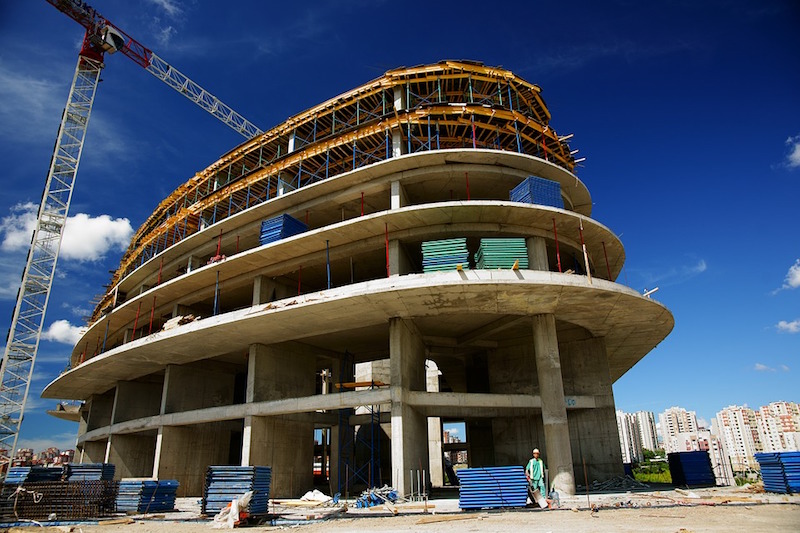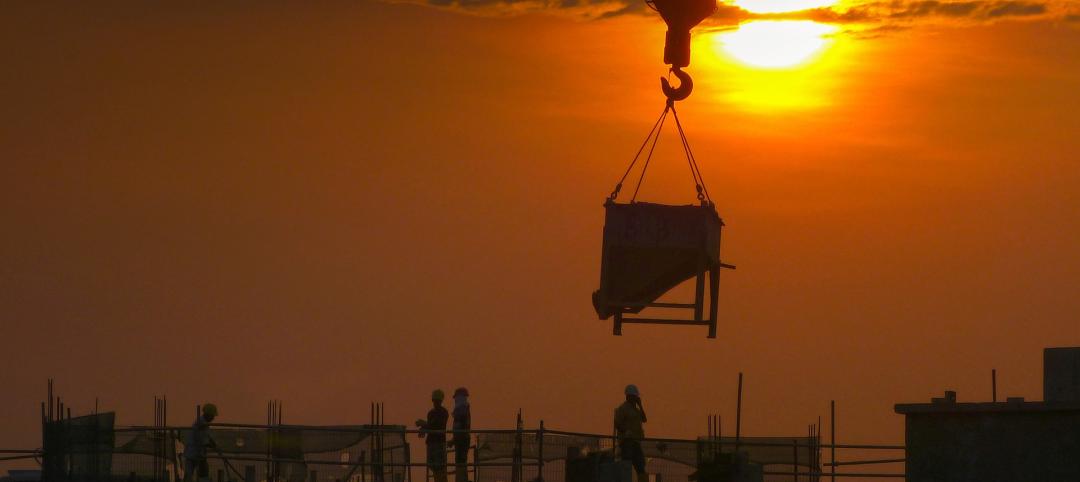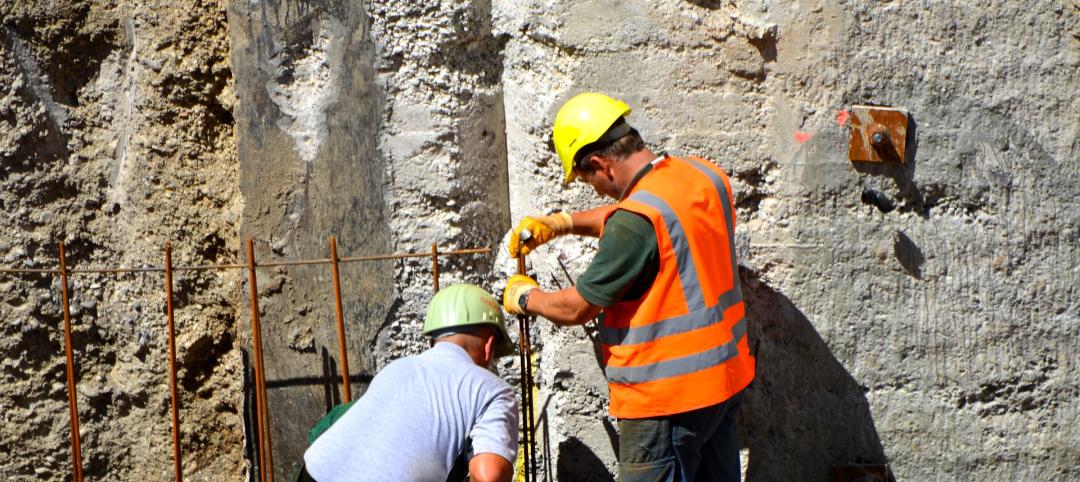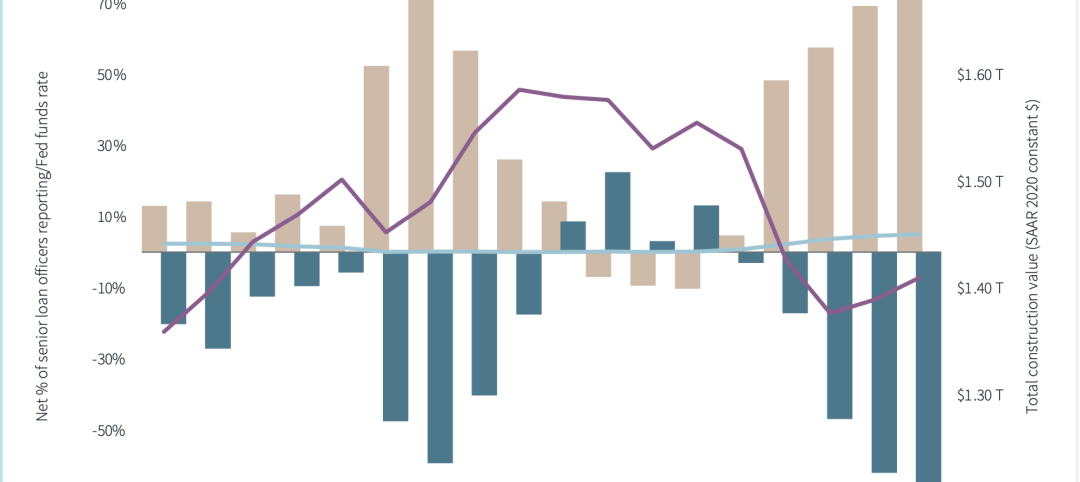Construction spending in February inched up 0.1% from January and increased 3.0% from the February 2017 level, according to an analysis of new government data by the Associated General Contractors of America. Association officials noted that public construction dropped sharply in February and urged federal agencies to move promptly to invest recently approved funding for a variety of construction categories.
"Construction spending in February was marked by healthy gains in most private categories but a widespread and steep downturn in public construction," said Ken Simonson, the association's chief economist. "Year-over-year trends suggest overall expansion, but public investment will depend on how quickly federal agencies follow up on the spending that Congress has authorized."
Construction spending in February increased 0.1% from January to a record level of $1.273 trillion at a seasonally adjusted annual rate. The February total exceeded the year-earlier level by 3.0%. For the month, private nonresidential construction spending rose 1.5%, private residential spending edged up 0.1%, but public construction spending declined by 2.1%. On a year-over-year basis, private residential construction spending increased 5.5%, private nonresidential spending added 1.1%, and public construction spending grew by 1.6%.
"All but one of the 13 public construction categories declined for the month," Simonson pointed out. "In particular, the largest public segment—highway and street construction—decreased 0.2% from January and 5.1% compared with the year-ago level. In contrast, new single- and multifamily construction increased for the month and year-over-year, as did most private nonresidential categories."
Association officials called on federal agencies to act promptly to distribute or spend the construction funds that Congress approved last month as part of an appropriations bill that keeps the government open through September. Officials noted that programs covering highways, other transportation, water and wastewater state revolving funds, and direct federal construction received funding increases after years of spending freezes or cuts, but these authorizations in some cases will expire in less than six months.
"Federal, state and local officials should act quickly to put the newly enacted federal funding to work improving infrastructure," said Stephen E. Sandherr, the association's chief executive officer. "It would be a shame to let an entire construction season pass before putting these new dollars to work improving the nation's public works."
Related Stories
Contractors | Sep 12, 2023
The average U.S. contractor has 9.2 months worth of construction work in the pipeline, as of August 2023
Associated Builders and Contractors' Construction Backlog Indicator declined to 9.2 months in August, down 0.1 month, according to an ABC member survey conducted from Aug. 21 to Sept. 6. The reading is 0.5 months above the August 2022 level.
Contractors | Sep 11, 2023
Construction industry skills shortage is contributing to project delays
Relatively few candidates looking for work in the construction industry have the necessary skills to do the job well, according to a survey of construction industry managers by the Associated General Contractors of America (AGC) and Autodesk.
Market Data | Sep 6, 2023
Far slower construction activity forecast in JLL’s Midyear update
The good news is that market data indicate total construction costs are leveling off.
Giants 400 | Sep 5, 2023
Top 80 Construction Management Firms for 2023
Alfa Tech, CBRE Group, Skyline Construction, Hill International, and JLL top the rankings of the nation's largest construction management (as agent) and program/project management firms for nonresidential buildings and multifamily housing work, as reported in Building Design+Construction's 2023 Giants 400 Report.
Giants 400 | Sep 5, 2023
Top 150 Contractors for 2023
Turner Construction, STO Building Group, DPR Construction, Whiting-Turner Contracting Co., and Clark Group head the ranking of the nation's largest general contractors, CM at risk firms, and design-builders for nonresidential buildings and multifamily buildings work, as reported in Building Design+Construction's 2023 Giants 400 Report.
Market Data | Sep 5, 2023
Nonresidential construction spending increased 0.1% in July 2023
National nonresidential construction spending grew 0.1% in July, according to an Associated Builders and Contractors analysis of data published today by the U.S. Census Bureau. On a seasonally adjusted annualized basis, nonresidential spending totaled $1.08 trillion and is up 16.5% year over year.
Giants 400 | Aug 31, 2023
Top 35 Engineering Architecture Firms for 2023
Jacobs, AECOM, Alfa Tech, Burns & McDonnell, and Ramboll top the rankings of the nation's largest engineering architecture (EA) firms for nonresidential buildings and multifamily buildings work, as reported in Building Design+Construction's 2023 Giants 400 Report.
Giants 400 | Aug 22, 2023
Top 115 Architecture Engineering Firms for 2023
Stantec, HDR, Page, HOK, and Arcadis North America top the rankings of the nation's largest architecture engineering (AE) firms for nonresidential building and multifamily housing work, as reported in Building Design+Construction's 2023 Giants 400 Report.
Giants 400 | Aug 22, 2023
2023 Giants 400 Report: Ranking the nation's largest architecture, engineering, and construction firms
A record 552 AEC firms submitted data for BD+C's 2023 Giants 400 Report. The final report includes 137 rankings across 25 building sectors and specialty categories.
Giants 400 | Aug 22, 2023
Top 175 Architecture Firms for 2023
Gensler, HKS, Perkins&Will, Corgan, and Perkins Eastman top the rankings of the nation's largest architecture firms for nonresidential building and multifamily housing work, as reported in Building Design+Construction's 2023 Giants 400 Report.

















